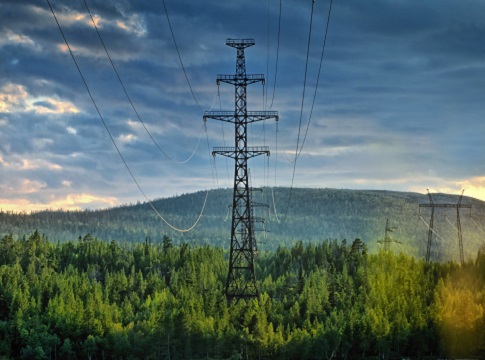The Public Utilities Regulatory Policies Act (PURPA) was passed in 1978 to promote conservation of energy, efficient use of facilities and resources, and provide equitable rates to customers. Over the years, PURPA has been updated with new standards. The recent Infrastructure Investment and Jobs Act added standards relating to demand response (DR) and electric vehicle charging programs (EV).
EWEB has the option of adopting the updated PURPA standards and is considering doing so. EWEB invites the public to comment on the proposed standards. More information is below.

Public Comment and Participation
EWEB is considering these new EV and DR standards and requests public participation through written or in-person comments. EWEB will create a written record of its determination on whether to adopt the new standards. The record will consist of staff analysis and recommendations, as well as comments submitted by the public.
Written comments
- Due by October 14, 2023.
- Please mail comments to: 4200 Roosevelt Blvd, Eugene, OR 97402, or ...
- Submit comments by emailing them to Aaron Yale-Bush at aaron.yale-bush@eweb.org.
In-person comments
- EWEB will provide time for comments during the October Board meeting.
- The meeting will be October 3, 2023 at 5:30 at 4200 Roosevelt Blvd, Eugene, OR 97402. Please check eweb.org for final details.
- Verbal comments will be limited to three minutes per person.
_________________________________________________________________________________________________________________________________________________________
Proposed PURPA standards
EWEB is considering adopting the updated PURPA standards. Details on each standard (for demand response and electric vehicles) are below.
Demand Response Practices Standard
- Utility shall promote the use of demand response and flexible demand.
- A utility may establish rate mechanisms to recover costs of demand response practices.
Electric Vehicles Charging Programs Standard
- Utility shall consider measures to promote transportation electrification.
- Promote equitable and affordable charging options.
- Aim to reduce charging times and promote third party investment in charging infrastructure.
- Appropriately recover costs of delivering this electricity to EVs.
_________________________________________________________________________________________________________________________________________________________
Documentation
Board of Commissioners memo for meeting on Oct. 3, 2023: PURPA Standards Initial Analysis – Demand Response and Vehicle Electrification
Board of Commissioners memo for meeting on Sept. 5, 2023: New PURPA Standards for Electric Vehicles (EV) and Demand Response (DR)
Board of Commissioners memo for meeting on Sept. 5, 2023: Resolution No. 2316, Adopting New EWEB PURPA Manual and Process
_________________________________________________________________________________________________________________________________________________________
Media coverage
EWEB press releases
10/11/23: EWEB seeks public input on electric vehicle, demand response standards
News media stories
Register-Guard (10/10/23): EWEB seeks public feedback on electric vehicle charging, flexible rates
KEZI (10/10/23): EWEB seeking public comment on updated federal EV and energy demand response policies
_________________________________________________________________________________________________________________________________________________________
Additional Information
Demand Response
Does EWEB currently have any demand response programs or time of use rates?
No. EWEB does not currently have demand response programs or time of use rates. EWEB has previously conducted pilot programs and performed analysis of these. Given prior market conditions and wholesale electric rates, there was not financial incentive to pursue the programs further. Additionally, EWEB has not had the billing or metering infrastructure needed to cohesively implement demand response rates for all customer classes.
Does EWEB anticipate resolving the technical barriers to adoption of demand response?
Yes. EWEB is currently in-process of rolling out advanced metering infrastructure (AMI) that will provide data to align billing with dynamic and responsive energy consumption. EWEB is also upgrading its internal software systems through the EWEB Enterprise Solutions (EES) project. This update will allow EWEB to create time of use rates, as well as other demand related billing systems.
Is demand response part of EWEB’s strategic plan for future resources?
Yes. EWEB foresees the need for better management of peak energy usage, and the recent 2023 Integrated Resource Plan confirmed this path. Demand response was selected as a cost-effective resource, and performing a demand response potential analysis is part of the IRP Action Plan. Additionally, managed electric vehicle charging is forecast to be one of the most cost-effective ways to reduce peak demand by the 2030’s.
Electric Vehicles
Does EWEB have a policy to promote vehicle electrification?
Not explicitly. Many of EWEB’s existing programs support the transition to electric vehicles, but EWEB does not have a separate policy to promote electrification. However, vehicle electrification aligns with several Board policies and community goals around decarbonization, which EWEB supports.
Does EWEB currently offer EV rebates and incentives?
Yes. EWEB has rebates and incentives for electric vehicle charging, as well as electric bicycles. These include smart charger rebates for residential customers, as well as DC fast-charging rebates and grants for commercial and non-profit. EWEB’s website has a complete list of current programs.
Are EWEB’s EV programs and rebates intended to address access and equity issues?
Yes. EWEB’s rebates for electric bicycles is intended to improve access for customers who do not have access to EV charging infrastructure, or do not have the financial means to purchase an EV. EV’s GoForth car share program is also intended to provide access to electric vehicles for customers who would not traditionally have access to a car or charging station.
Does EWEB offer specific rates for EV charging?
No. EWEB does not currently have specific rates or ‘marginal cost’ charges for EV charging.
How are EWEB’s EV programs funded?
The majority of funding for EWEB’s electric vehicles programs comes from Oregon’s Clean Fuels program. Through the Clean Fuels program, EWEB receives credits when customers charge their electric vehicles with our low-carbon electric supply. EWEB markets these credits and uses the revenue to support EV programs.

